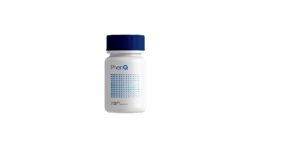Vitamin D is known as “the sunshine vitamin” as it is produced in the presence of the sun’s ultraviolet-B (UVB) rays. It is a fat-soluble and naturally occurring vitamin but few foods naturally contain vitamin D.
Vitamin D supplement is essential for many people because it is not possible to consume the total requirement through food only. Vitamin D supplements are there in two forms. Vitamin D2(pre-vitamin or ergocalciferol) and vitamin D3 (cholecalciferol). D2 is produced in plants and fungi and D3 is in animals and humans.
Our main source of vitamin D is that produced in the skin in the presence of sunlight. Those who spend m. There can be vitamin D deficiency in those who have limited sunlight, those who do not have many outdoor activities, and those with darker skin. Excess melanin acts as a shade to them and restrains them from vitamin D production.
Recommended Daily Amount of Vitamin D
It is recommended for adults of 19 years and above 600 IU (15 mcg) daily for both men and women and for adults above 70 years of age it is 800 IU (20 mcg) daily.
Testosterone is a sex hormone that is released in both male and females but the levels of testosterone is more in male and a very little amount in females, it is known as the male sex hormone. Testicles in males and ovaries in females produce testosterone.
Testosterone is responsible for male organ development in the body when in the fetus, in teenage testosterone develops the secondary male reproductive signs. In puberty testosterone production increases significantly. But after 30 years of age, it begins to decline.
Test of Testosterone Level
A simple blood test can determine the level of testosterone in the blood. Normal or healthy testosterone levels have a wide range from 280 and 1100 nanograms per deciliter (ng/dL) for males and between 15 and 70 nanograms per deciLiter (ng/dL) for adult females.
Vitamin D and Testosterone
Vitamin D is directly related to the development of bone, teeth, and hair. It helps in calcium and phosphorus absorption in the bone and teeth. So does testosterone. It strengthens bone density, increases muscle mass, and regulates fat accumulation. But besides that vitamin D plays a very important role in the male hormone, testosterone production. The effect of vitamin D deficiency can be so intense that it sometimes causes infertility in men, and an imbalance in mood and behavior.
It signals the Leydig cells in the testes to produce and release testosterone. A large-scale case study showed men who are suffering from long-term vitamin D deficiency, their Leydig cells become less sensitive to produce testosterone.
How to increase the production of testosterone using vitamin D
If there are low testosterone levels it can be administered from outside. But it is always better to boost the natural production of testosterone by altering the factors that stimulate testosterone production. There are various internal and external factors that can increase the production of testosterone. Among those factors, vitamin D is one vital one. It is scientifically proven that vitamin D deficiency causes different physical and mental issues in males, even infertility. Vitamin D supplements are required in such cases.
A study involving many males showed that regular vitamin D intake increases total testosterone levels by 30%.
Only administering vitamin D capsules or consuming foods that are rich in vitamin D can do wonders and solve such a big physical, mental, and social issue among males. Among the two forms of vitamin D, D2 and D3, vitamin D3 levels are responsible for testosterone production.
Foods rich in vitamin D
Though the vitamin D that is produced in the skin in the presence of sunlight is the main source of vitamin D in the body, there are several other food items that can be added to our daily menu to get the required amount of vitamin D. They are:
- Cod liver oil
- Tuna fish
- Salmon fish
- Sardines
- Dairy and plant milk
- Egg yolk
- Swordfish
- Beef liver
Vitamin D toxicity
Vitamin D boosts testosterone production and release. But that doesn’t mean that excess vitamin D consumption can increase the testosterone level. Instead, if the daily consumption exceeds 4000 IU, it can lead to vitamin toxicity. The symptoms are anorexia, irregular heartbeat, and weight loss. In such situations, blood tissues and blood vessels get hardened and the kidney and heart can be damaged.
Conclusion
Testosterone is a very important hormone in both males and females, a deficit of it affects the male more than the female. A simple act of spending quality time under the sun can solve a complex problem, male infertility. That is why people around the equatorial region do not suffer from vitamin D deficiency as those residing in temperate or polar regions and those who do not get enough sunlight. Vitamin D supplements will be at their rescue.









